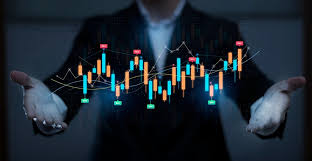
Welcome to our comprehensive Forex Trading School, where aspiring traders can acquire the skills necessary to excel in the competitive world of forex trading. Whether you’re a complete beginner or someone with prior experience, this school is designed to equip you with the knowledge you need to trade successfully. The forex market, known for its high liquidity and accessibility, offers ample opportunities for profit. However, without a solid foundation and proper education, trading can become a daunting task. That’s why institutions like forex trading school LATAM Trading Brokers play a crucial role in offering guidance and resources to traders of all levels.
Understanding the Forex Market
The forex market, or foreign exchange market, is the largest financial market in the world, where currencies are traded against each other. With an average daily trading volume exceeding $6 trillion, it serves as a hub for international trading and serves various participants including banks, financial institutions, corporations, and individual traders. To navigate this market successfully, one must first understand its core concepts, including currency pairs, pips, margins, and leverage.
Currency pairs are the foundation of forex trading, consisting of a base currency and a quote currency. For example, in the EUR/USD pair, the euro is the base currency, while the US dollar is the quote currency. Understanding how to read currency pairs is essential for successful trading; when you buy a currency pair, you are essentially betting that the base currency will strengthen against the quote currency.
Adding to that, pips represent the smallest price movement in a currency pair, usually the fourth decimal point (0.0001) for most pairs. Margins and leverage allow traders to control a larger position with a smaller amount of capital, amplifying both potential profits and risks.
Developing a Trading Strategy
A solid trading strategy is vital for achieving long-term success in the forex market. This strategy should include clear guidelines on when to enter and exit trades, risk management techniques, and specific criteria for choosing currency pairs to trade. Traders can develop various strategies, including technical analysis, fundamental analysis, or a combination of both.
Technical analysis involves studying price charts and historical data to identify patterns and trends. Tools such as moving averages, support and resistance levels, and various indicators (e.g., RSI, MACD) can assist traders in making informed decisions. On the other hand, fundamental analysis requires an understanding of economic indicators, government policies, and global events that can impact currency values, such as interest rates and geopolitical tensions.
Risk Management Techniques
Risk management is an integral part of any trading strategy. Successful traders prioritize safeguarding their capital by implementing strict risk management protocols. This includes setting stop-loss orders to automatically close positions at a predetermined price, which helps mitigate losses in adverse price movements.
Another effective risk management technique is to risk only a small percentage of your trading capital on any single trade, typically between 1-2%. This approach ensures that no single loss will significantly impact your overall trading account, allowing you to sustain your trading activities over the long run.

Choosing the Right Forex Broker
Choosing the right forex broker is crucial for your trading success. Factors to consider include trading platforms, spreads, commissions, customer support, and the range of educational resources provided. A reliable broker will also offer a demo account, allowing you to practice your trading strategies without risking real money.
The role of brokers in providing a seamless trading experience cannot be overstated. They facilitate execution of trades, manage the security of your funds, and offer educational resources to help you learn the ins and outs of forex trading. For instance, brokerages like LATAM Trading Brokers often provide access to comprehensive trading tools and resources tailored to both novice and experienced traders. This assistance can prove invaluable as you learn to navigate the complexities of the forex market.
Continuous Learning and Improvement
The forex market is dynamic and ever-evolving, making it essential for traders to commit to continuous learning and improvement. Engaging with fellow traders, reading trading books, attending webinars, and participating in trading courses can help you stay updated on the latest trends and strategies. Additionally, reflecting on your trading experiences, analyzing trades, and adjusting your strategies will enable you to hone your skills over time.
Psychological Aspects of Trading
Trading psychology is a crucial element that often gets overlooked by many aspiring traders. The forex market can evoke strong emotions, including fear and greed, which can lead to impulsive decisions and trading mistakes. Developing a disciplined mindset involves learning how to manage these emotions effectively, sticking to your trading plan, and maintaining a long-term perspective.
One way to cultivate the right mindset is to practice mindfulness techniques, such as meditation or journaling, to manage stress and improve focus. Furthermore, understanding your risk tolerance and setting realistic expectations will help you maintain a balanced approach to trading.
The Future of Forex Trading
As technology continues to advance, the landscape of forex trading is also changing. The rise of algorithmic trading, artificial intelligence, and machine learning is making it easier for traders to analyze vast amounts of data and make trading decisions based on quantitative models. Moreover, the proliferation of mobile trading apps has made it possible for traders to execute trades anytime and anywhere, enhancing accessibility to the forex market.
In conclusion, enrolling in a Forex Trading School is a wise investment in your trading career. By arming yourself with knowledge about the forex market, developing robust trading strategies, implementing effective risk management, and continuously improving your skills, you position yourself for success in this exciting market. Remember that while the potential for profit is significant, trading forex also involves risks. Therefore, approach it with the right mindset, and take the time to learn the craft thoroughly. Happy trading!
